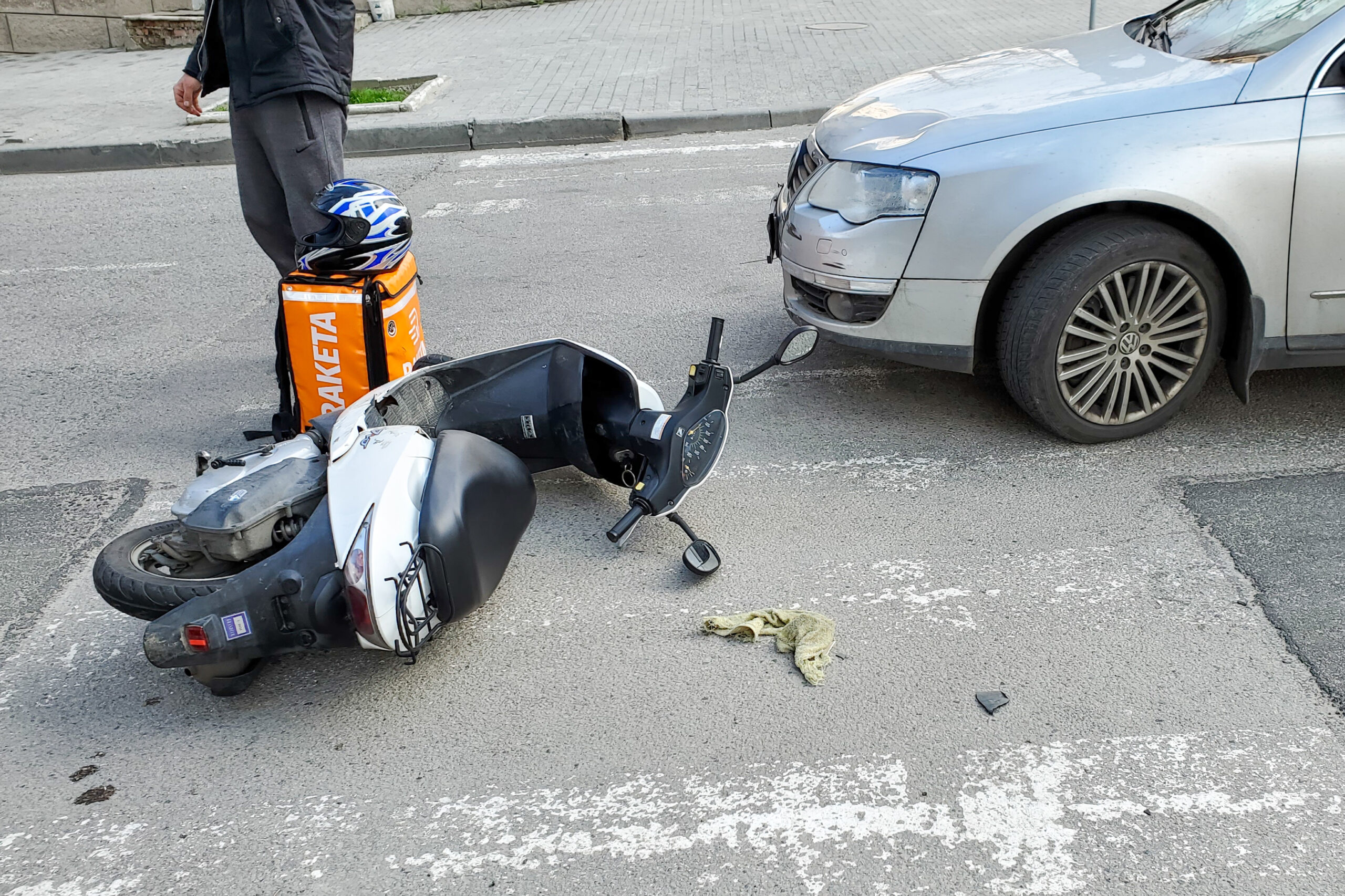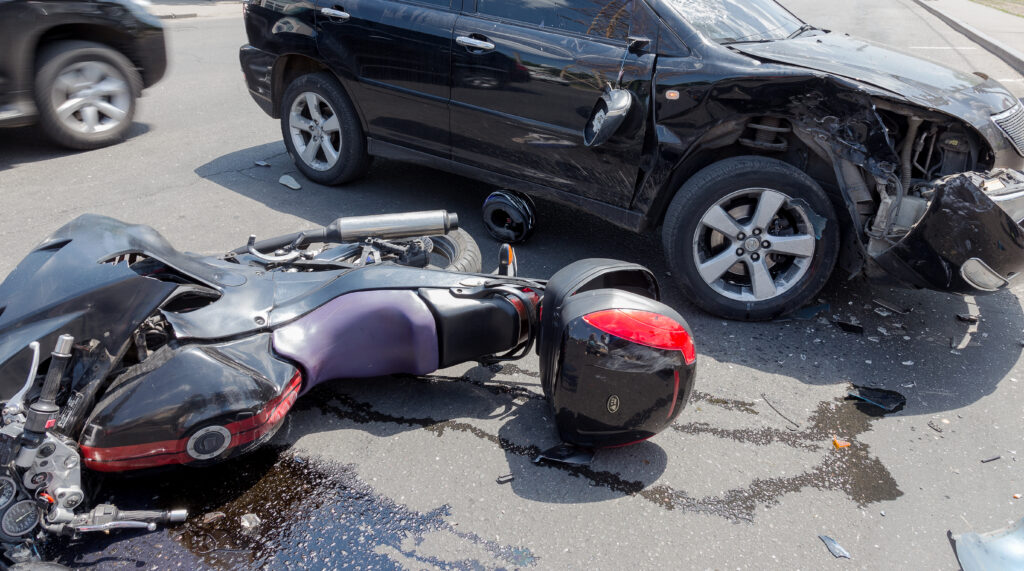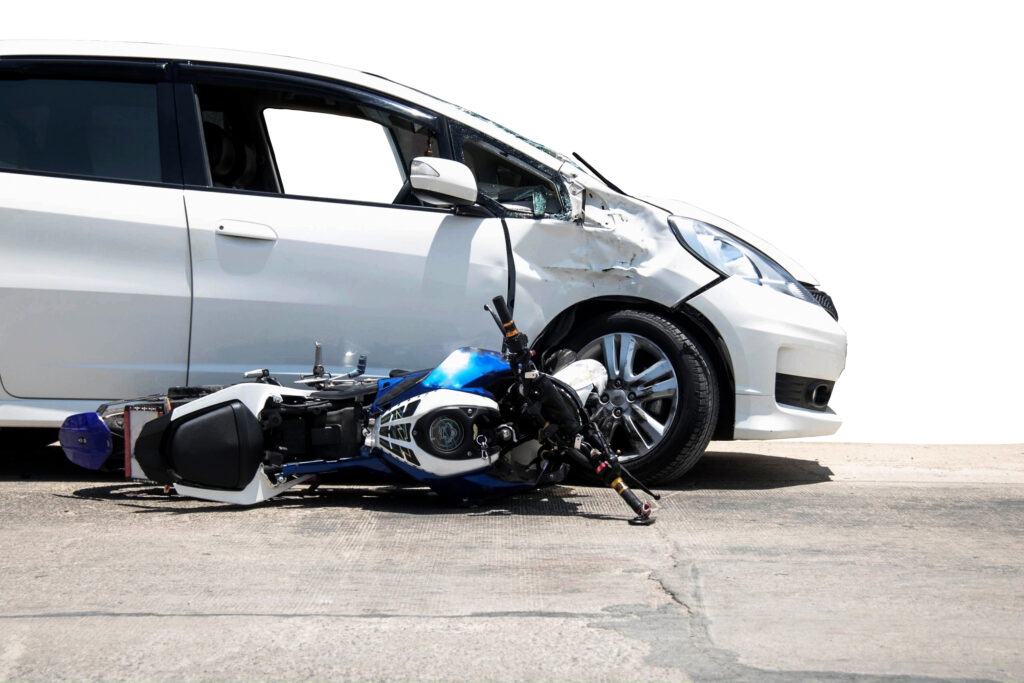Steven A. Bagen | January 4, 2024 | Motorcycle accident

After a motorcycle accident, you might feel scared and confused, and the first thing you need to do is get medical help if you need it. Then, get the justice you deserve and an experienced Palatka motorcycle accident lawyer can help you with legal procedures. Your actions after the accident can significantly affect your legal case or claim.
Here are some facts to keep in mind:
- Motorcycle accidents are prevalent and dangerous. In recent years, more than 5,500 motorcyclists died, and almost 79,000 suffered an injury on US roads.
- Most motorcycle accidents happen because of other drivers. About 74 percent of motorcycle crashes involve a frontal collision with another vehicle.
- Wearing a helmet can save your life. Helmets save an estimated 1,872 lives a year and might save 750 more if all motorcyclists had worn them.
Remember, every action following the accident can significantly affect any legal proceedings or claims you may pursue.
Document Everything
When you’re in a motorcycle accident, the details and evidence you gather can significantly impact the outcome of any legal action you may decide to pursue. Let’s walk through the steps to document your motorcycle accident thoroughly.
Photograph Your Motorcycle and Injuries

Take close-up shots of the damage from multiple angles and then document any physical injuries you have sustained. Photograph bruises, cuts, or abrasions, and capture these images as soon as possible since injuries can change appearance over time.
Gather Witness Information
If there were people who saw the accident, their accounts can be valuable. Approach any witnesses and politely ask for their names and contact details, and if they’re willing to share what they saw, jot down their statements. Having a third-party perspective can lend weight to your account of the accident.
Preserve Evidence of the Accident
Besides photographs, there are other forms of evidence you should preserve. If a piece of your motorcycle broke off in the accident, keep it. The same goes for any damaged personal items like your helmet or clothing. These physical pieces can serve as tangible evidence of the impact and severity of the crash.
Record Your Medical Journey
After the accident, record your medical treatments, including emergency care, follow-up visits, physical therapy sessions, or any other treatments related to your injuries. Keep copies of medical reports, prescriptions, and bills. These documents can prove the extent of your motorcycle accident injuries and the financial impact of the accident on your life.
Track Your Expenses and Losses
The financial toll of an accident goes beyond medical bills. You might have to miss work, pay for transportation to medical appointments, or hire help for daily tasks. Keep a detailed record of all these expenses, including receipts, logging lost work hours, and noting any other costs incurred by the accident.
Write a Personal Account
As soon as you can, write down your recollection of the accident. Include every detail you can remember, no matter how small. Over time, memories can fade or change, so having a written account of when the incident was fresh in your mind can be extremely useful. Describe what you saw, heard, and felt before, during, and after the collision.
Keep Everything Organized
Finally, keep all this documentation organized. Use a folder or a digital file system to store photos, witness information, medical records, expense receipts, and your written account. Everything in order and easily accessible can streamline the process if you decide to pursue legal action.
Remember, the more thorough you are in documenting your motorcycle accident, the stronger your case can be.
Report the Accident
Report the accident to the police if you haven’t already done so at the scene. A police report provides an official incident record and can help in legal proceedings. Obtain a copy of this report containing information your lawyer can use.
The Role of a Police Report

A police report is an impartial account of the accident compiled by a law enforcement officer. This report usually includes details like the accident’s date, time, and location, descriptions of the vehicles involved, statements from the parties involved and any witnesses, and the officer’s observations and conclusions about what happened. It may also include a diagram of the accident scene in many cases.
The significance of a police report lies in its role as an objective record. Subjective personal recollections are sometimes unreliable in insurance claims or lawsuits. A police report provides a baseline narrative that establishes the basic facts of the case.
How to Report the Accident
If the police did not come to the accident scene, you must report it yourself, which you can do at the nearest police station or, in some cases, online or over the phone. When you go to report the accident, bring any information you have collected, such as photos, witness contact details, and your account of what happened.
Speaking with the Police
When you talk to the police, be honest and provide as much detail as you can remember. However, sticking to the facts and avoiding speculating or assigning blame is important. The role of the police is to gather information rather than to determine who is liable for insurance or legal purposes.
Obtaining a Copy of the Police Report
After you’ve reported the accident, ask the officer how and when you can obtain a copy of the police report. The availability of the report can vary by location. In some cases, it might be ready in a few days, while in others, it might take a couple of weeks.
Why You Need a Copy
Once you have the police report, review it to ensure it accurately reflects the accident because it provides a foundation to build your case. Your lawyer will use the information in the report to better understand the accident and develop a strategy for your case.
Keep the Report Safe
Once you receive the police report, keep it in a safe place along with your other accident-related documents. This organized approach will help ensure you have all necessary information readily available when you consult a lawyer or communicate with insurance companies.
Be Mindful of Communication
When you’re involved in an accident, it’s natural to want to talk about it. However, be careful about what you say and to whom. Avoid discussing who is at fault or accident details with anyone other than your lawyer.
Also, be cautious with insurance companies. They might try to get a statement from you, but it’s often best to speak with a lawyer first.
Understanding the Sensitivity of Communication
Every statement you make about the event can be important when involved in a motorcycle accident. Anything you say can turn into evidence in a legal or insurance claim.
For instance, an insurance adjuster might take an offhand comment about what happened or how you feel out of context. Be mindful of your words and who you share them with.
Talking to Others at the Accident Scene
At the accident scene, you may need to interact with the other party involved, witnesses, and the police. In these interactions, stick to the basic facts.
Provide your contact and insurance information, but avoid discussing details about the accident, especially any thoughts you might have about who was at fault. Even a simple apology can be an admission of guilt.
Dealing with Insurance Companies
Insurance companies often contact parties involved in an accident to get a statement about what happened. While reporting the accident to your insurance company is essential, be cautious about giving a detailed statement, especially if you have yet to speak to a lawyer.
Insurance adjusters are skilled at gathering information that might minimize the amount they need to pay. Consult a lawyer before giving any formal statement to an insurance company.
Speaking with a Lawyer First
A lawyer can guide you on how to communicate about your accident. They can advise what information you must share and what should be kept private.
The Role of Social Media
In today’s digital age, many people share details of their lives on social media. However, refrain from posting any information on the incident online regarding a motorcycle accident. Comments, photos, or even location check-ins related to the accident can construct a narrative about the accident, your injuries, and your activities that might hurt your case.
Keeping Records of Communication
Keep records of any communication related to the accident, whether emails with your insurance company or messages with the other party involved. You can refer to written records later in legal or insurance proceedings.
Understand Your Rights
After a motorcycle accident, you have legal rights, which can vary significantly depending on where you live, as each state has its own set of laws and regulations concerning traffic accidents.

Generally, these laws will cover areas such as who is responsible (or at fault) for the accident, what kind of compensation you might get, and the timeframe within which you need to take legal action (known as the statute of limitations).
You need a lawyer who understands legal terminology and concepts, as they can significantly affect any legal action you consider.
Seek Legal Assistance
Seeking legal assistance from a lawyer who handles motorcycle accidents is one of the most important steps. A lawyer with experience in this field will deeply understand the laws and regulations that apply to your situation.
They can offer guidance on how best to proceed with your case, whether that involves negotiating with insurance companies, filing a lawsuit, or seeking compensation for damages and injuries.
A lawyer can also navigate you through legal proceedings. They can handle the filing of necessary documents, represent you in court if needed, and work to protect your rights throughout the process. They can evaluate the strength of your case, advise you on the likely outcomes, and develop a strategy tailored to your specific circumstances.
Avoid Quick Settlement Offers
After an accident, insurance companies may approach you with a settlement offer. While it might be tempting to accept this and move on, these initial offers can often be much lower than you’re entitled to. They may not fully cover your medical expenses, lost income, or other damages resulting from the accident.
A lawyer can assess any settlement offers you receive and explain whether they are fair and adequate. They have the experience to estimate the actual value of your claim, considering not only your current losses but also future expenses and impacts on your quality of life.
If the offer is too low, your lawyer can negotiate with the insurance company on your behalf to seek a more appropriate settlement.
Keep Track of Your Recovery
The process of recovery after a motorcycle accident can be long and challenging. Keep detailed records of this process. Document every medical appointment, treatment session, and medication or therapy you receive.
Keep notes on how your injuries affect your daily life, including your ability to work, perform routine tasks, and enjoy hobbies or activities you participated in before the accident.
These records are essential for several reasons. They provide concrete evidence of the accident’s impact on your life, which is helpful in legal proceedings. They also help quantify the damages you’ve suffered, which determines the compensation you should receive. Detailed records of your recovery can demonstrate the seriousness of your injuries and their long-term effects.
Contact a Motorcycle Accident Lawyer Near You

After a motorcycle accident, you might feel overwhelmed and unsure what to do next. But don’t worry; there are some simple steps you can take to improve your situation and get the justice you deserve.
The most important thing is to gather as much evidence as possible, know your rights, and find a good lawyer. A qualified lawyer can guide you through this tough time and get a fair outcome for your case.
You don’t have to go through this alone. Be thoughtful, careful, and proactive; you will protect yourself and your well-being.
